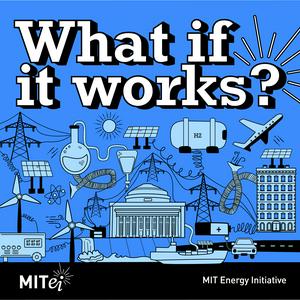As a clean energy source, hydrogen has shown to have a lot of potential. But when generated using fossil fuels, hydrogen production can have a large environmental impact—even if the energy source itself doesn’t generate emissions. So, what if we can get readily available hydrogen from the ground instead? Brad Hager, a professor of earth, atmospheric, and planetary sciences at MIT, explores the potential of geologic hydrogen, looks at some of the possible pitfalls, and asks what it might take to get more companies invested in it.
What if it works? is a production of the MIT Energy Initiative. This episode was hosted by Rob Stoner and Kara Miller.
Transcript and show notes at energy.mit.edu/podcasts


